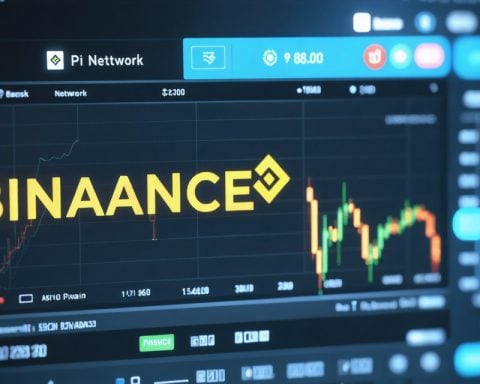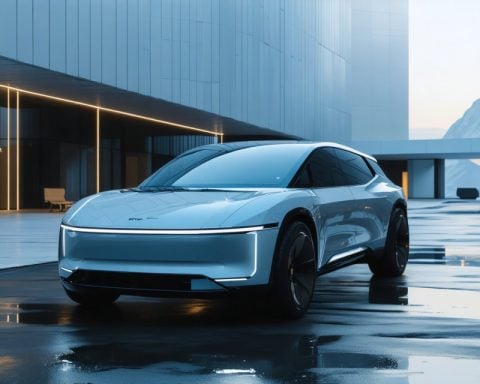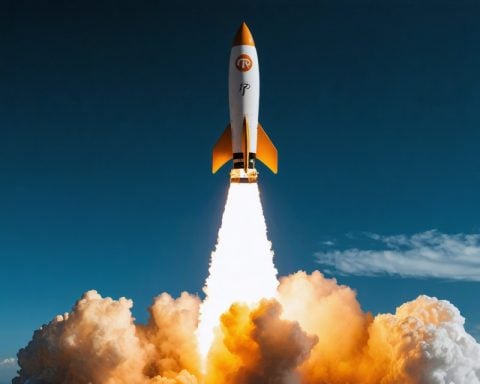Revolutionizing Flight for a Cleaner Tomorrow
In the aviation sector, a remarkable change is taking place thanks to innovative advancements in hydrogen-electric drive systems. ZeroAvia has introduced the ZA600 powertrain, a game-changer in achieving sustainable flying, as it emits only water vapor, paving the way for environmentally friendly air travel.
By implementing hydrogen fuel cells, the ZA600 transforms conventional aviation engines. It produces electricity that powers propellers, achieving true zero-emission flights. This revolutionary technology leaps beyond traditional net-zero solutions, completely eliminating harmful emissions. Presently, ZeroAvia can power smaller aircraft but envisions scaling this technology for larger regional jets and even iconic models such as the Boeing 747.
Hydrogen-electric propulsion systems possess advantages that purely battery-operated aircraft do not. Batteries can be heavy and occupy significant space, whereas hydrogen offers a lightweight, high-energy-density alternative, meeting the industry’s operational needs efficiently. Additionally, the hydrogen used in this process is derived from renewable sources, ensuring a green energy footprint.
ZeroAvia’s ambition extends beyond mere technological creation; it reflects a holistic vision for a sustainable aviation industry. With formal certifications from aviation authorities and substantial order commitments from airlines, the company is poised to transform air travel while addressing climate change challenges. The future of aviation may very well depend on these groundbreaking advancements, reshaping our world in more ways than one.
Hydrogen Power Takes Flight: The Future of Sustainable Aviation
Revolutionizing Flight with Hydrogen-Electric Systems
In a pivotal shift towards sustainable aviation, ZeroAvia has made significant strides with its pioneering ZA600 hydrogen-electric powertrain. This technology not only promises to reduce aviation’s carbon footprint but also introduces a radical new approach to flight operations by utilizing hydrogen fuel cells, which emit only water vapor, effectively setting a new standard for environmentally friendly air travel.
How Hydrogen-Electric Powertrains Work
The ZA600 powertrain operates by converting hydrogen into electricity through fuel cells. This electricity powers the aircraft’s propellers, allowing for zero-emission flights. Unlike traditional net-zero initiatives that merely offset emissions, ZeroAvia’s system completely eliminates harmful outputs from the flight process. This fundamental shift indicates a future where air travel can be sustainable without compromise.
Advantages Over Traditional Battery-Powered Aircraft
Hydrogen-electric propulsion presents several advantages over battery-operated systems:
– Weight and Space Efficiency: Hydrogen has a higher energy density compared to batteries, meaning it can store more energy with less weight. This efficiency allows for a greater payload and improved performance for regional aircraft.
– Renewable Fuel Source: The hydrogen used is generated from renewable resources, contributing to a lower overall environmental impact and aligning with global strategies to reduce greenhouse gases in aviation.
Industry Implications and Market Potential
ZeroAvia aims to not only power smaller aircraft but also scale its technology for larger jets, including iconic aircraft like the Boeing 747. The implications for the aviation industry are profound, presenting an opportunity to drastically lower emissions and redefine operational standards.
Certifications and Commitments
The company has received formal certifications from relevant aviation authorities, which is crucial for widespread adoption. Additionally, they have secured substantial orders from various airlines, indicating strong market interest and potential for rapid deployment in commercial aviation.
Sustainability Focus
ZeroAvia’s initiative is not merely technological. It encompasses a broader vision of sustainability in aviation, addressing the urgent need to combat climate change. By integrating renewable hydrogen fuel into the aviation sector, ZeroAvia contributes to global sustainability goals and promotes a cleaner environment for future generations.
Challenges and Limitations
While the progress is promising, there are challenges to overcome:
– Infrastructure Needs: Building the necessary refueling infrastructure for hydrogen is essential for widespread adoption. Airports will need to adapt and invest in hydrogen infrastructure to meet the demand.
– Public Perception: Gaining public trust in hydrogen as a safe fuel source is crucial. Education and transparency about hydrogen technology and safety measures will be necessary to foster consumer acceptance.
Future Predictions
As ZeroAvia continues to innovate and expand its hydrogen-electric technology, industry experts predict that within the next decade, we may see a significant shift towards hydrogen as a primary energy source in aviation. This shift could reshape airline economics, passenger experiences, and the overall environmental impact of air travel.
For more insights on sustainable aviation technology, visit ZeroAvia.
Conclusion
ZeroAvia’s ZA600 powertrain represents a critical advancement in the quest for sustainable aviation. As this technology gains traction, it may revolutionize how we think about air travel, pushing the boundaries of what is possible while prioritizing the health of our planet. The future of aviation looks brighter and greener with hydrogen on the horizon.


















